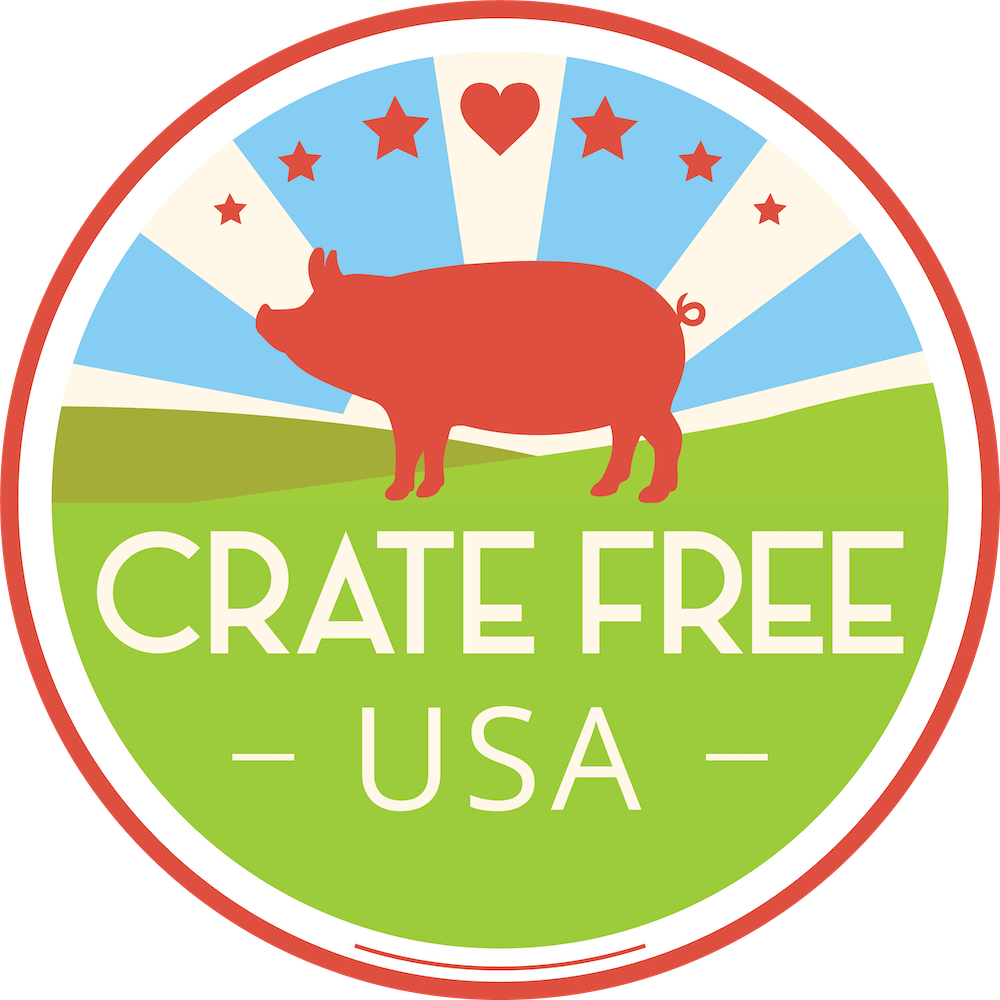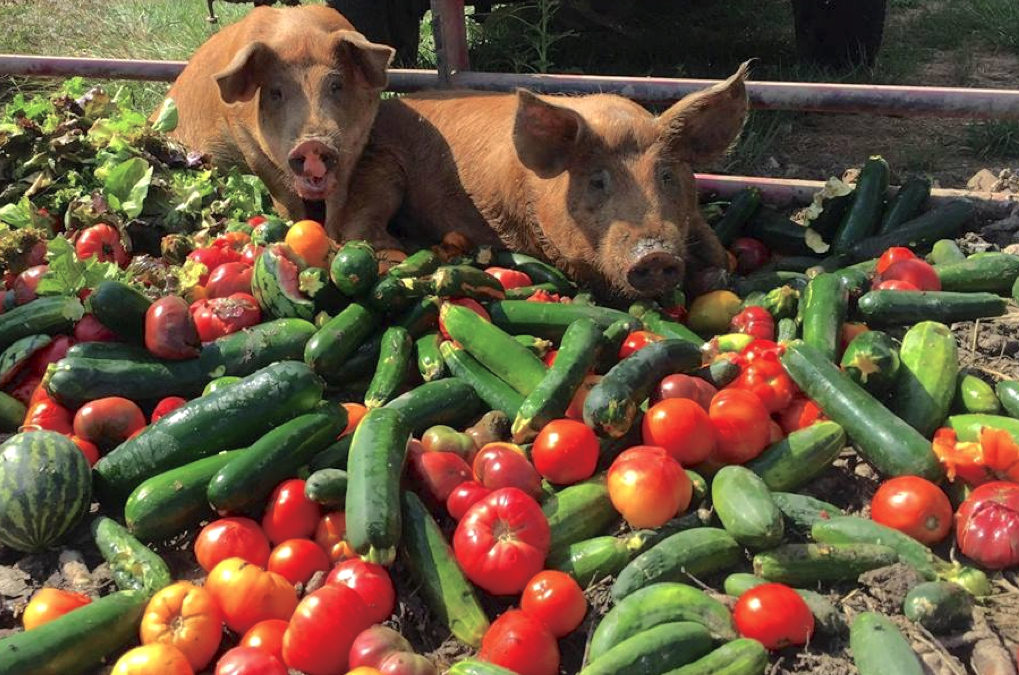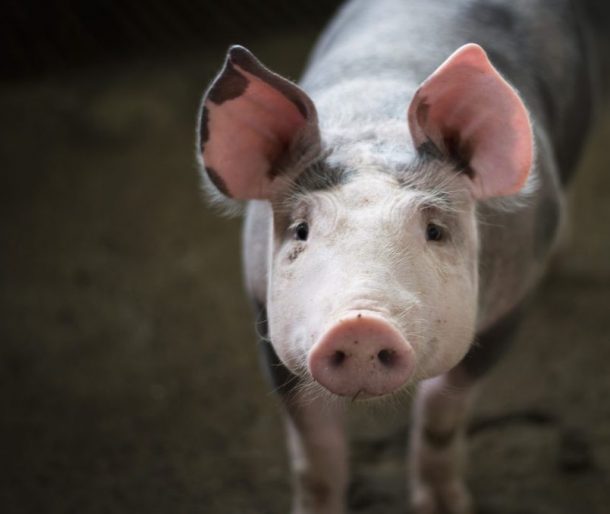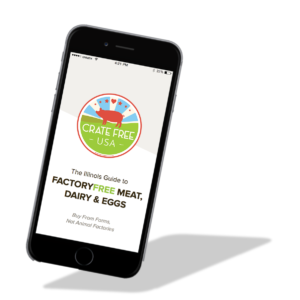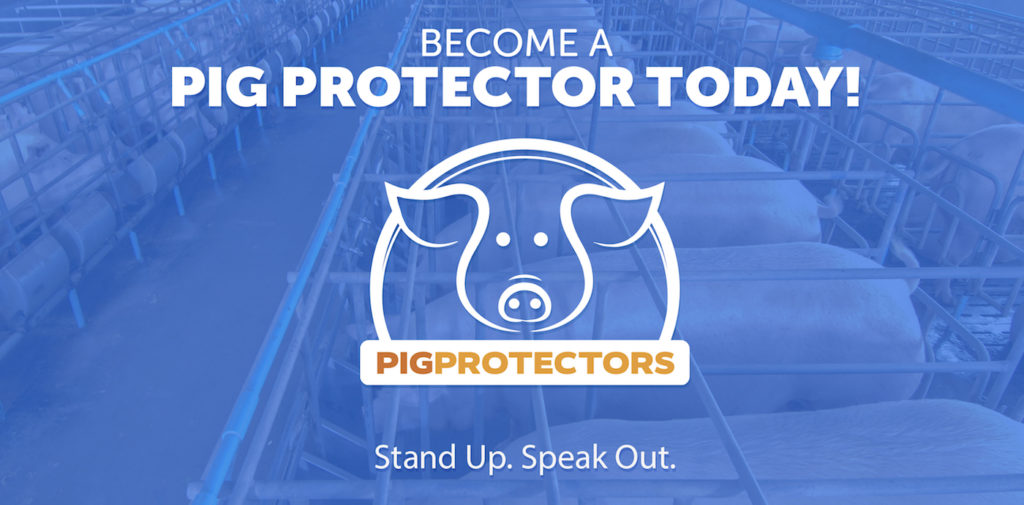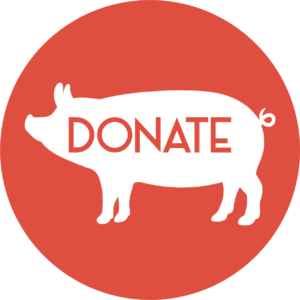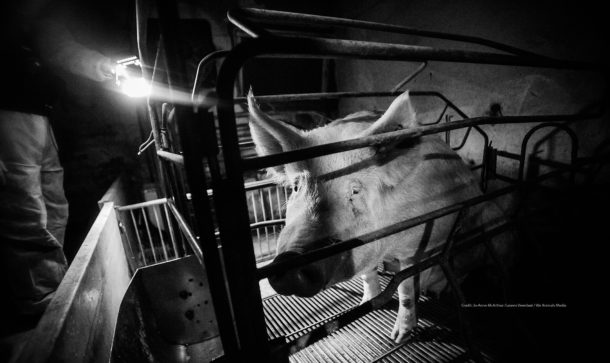Part of our pragmatic approach is to be all-inclusive, understanding that the majority of people are not going to go vegan, at least not tomorrow. We want to improve the lives of animals being raised for food right now. Therefore, we support our local farmers who raise their animals humanely and sustainably.
This month we’re getting to know Dave Bishop of PrairiErth Farm.
PrairiErth Farm is a 400-acre, multigenerational, organic farm in central Illinois about 30 minutes outside of Bloomington. Their goal is to limit their ecological footprint by caring for the earth, not just for us, but for future generations. Dave and his team believe that “organic” is more than just a practice, it’s a way to influence a healthy lifestyle in the community and provide a sustainable way of producing food.
PrairiErth Farm produces corn, soybeans, wheat, oats, vegetable crops, and livestock including organic, grass-fed beef cattle, pastured hogs, and egg-laying hens. The 50 head of beef cattle graze both permanent pasture areas and on row crops acres, usually accompanied by poultry. Their hogs follow the cattle, converting waste from the cattle’s winter feeding area and summer vegetable crop waste.
Many thanks to Dave for taking some time to share his perspective with us on a variety issues that farmers are facing today.
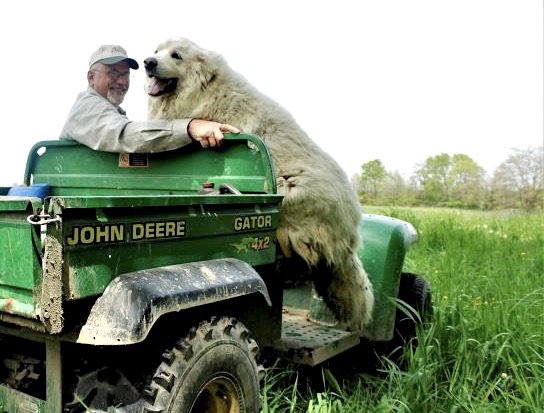
Dave driving around PrairiErth Farm with the boss…Molly
How did you first become involved in farming?
I grew up on a dairy farm near Peoria. After college and a four-year stint as a flight instructor, I had an opportunity to farm on my own in Logan County, beginning in 1979.
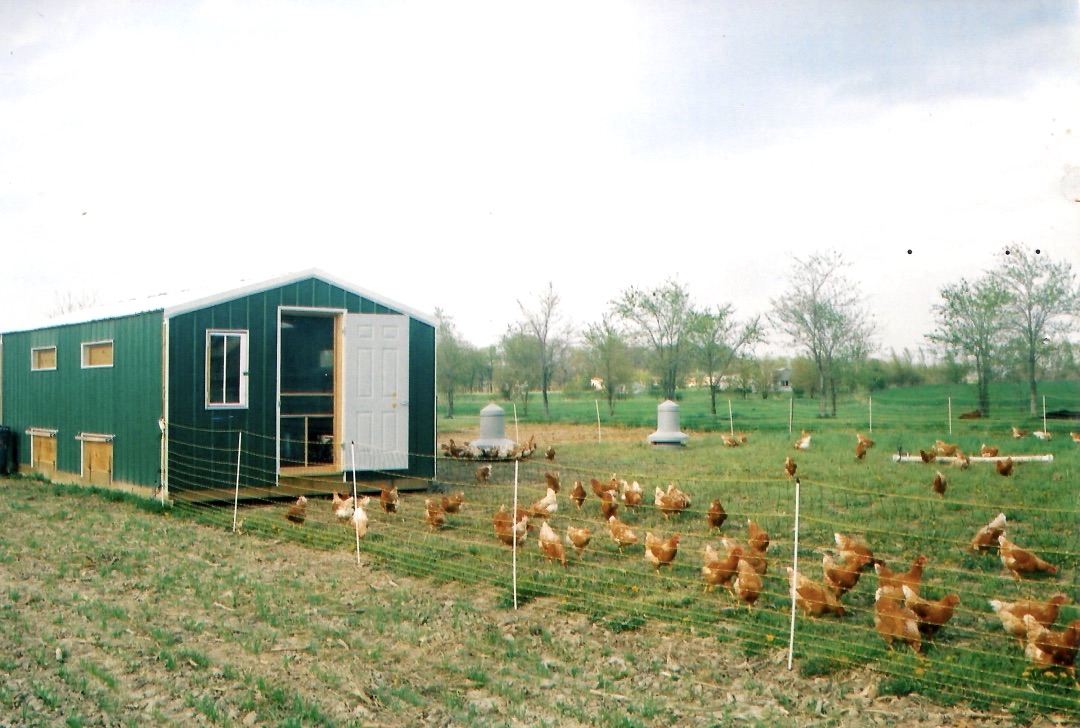
Pastured Hens at PrairiErth Farm
Why is farming sustainably and humanely important to you?
Truly regenerative agriculture requires a diverse mix of plants and animals on the land together. It is the interactions of plants and animals on the land that provide the ecosystem services required to both produce food and to maintain and improve the health of the soil without depleting natural resources or damaging the environment. In this system, animals are service providers, not simply sources of meat, milk, or eggs.
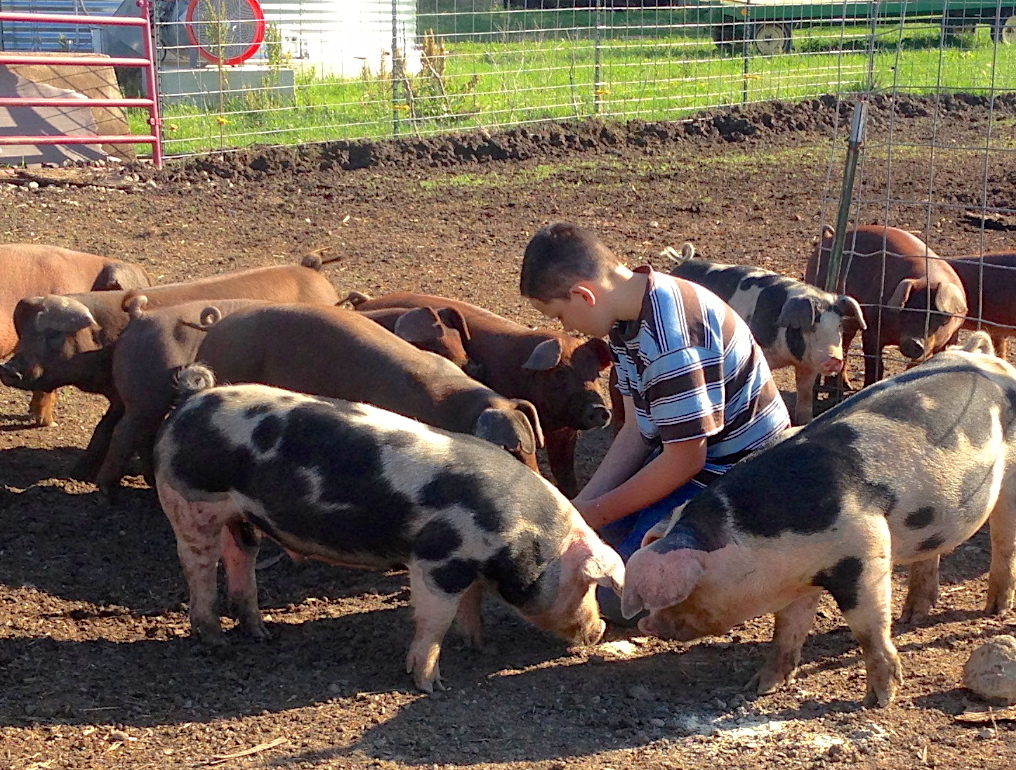
How have the economics of farming changed in the last several years and how has it affected you? What further changes are you anticipating?
The industrial food system has come under increasing stress in recent years due to overproduction and loss of overseas markets. In 2020, the fragility of the industrial processing system was exposed by the pandemic as work slowed in the huge meat processing centers and hundreds of thousands of animals were slaughtered and buried.
This has given new energy to regenerative farming production systems and added local value to local food systems. The hope is that we can build on the progress already made and replace the industrial food system — it’s really up to the consumer and their purchasing choices.
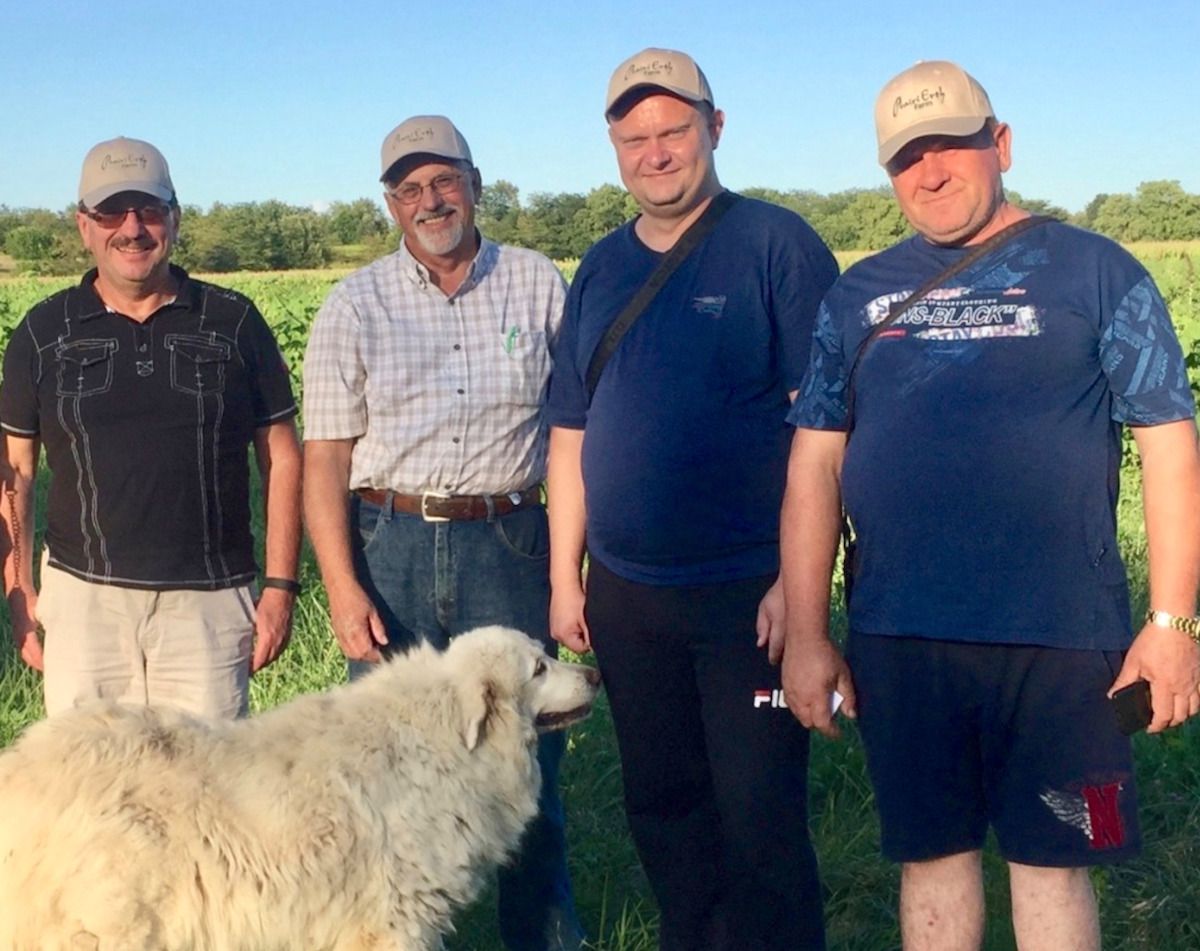
Farmers from Ukraine visiting PrairiErth Farm
What are your views on extreme confinement and gestation crates for pigs? Would you support a bill to extreme confinement? Why or why not?
Raising animals in extreme confinement is not only cruel, but would not be economically feasible without the ability to externalize a significant amount of the production costs. Repairing damage to the environment caused by runoff, for example, is left to the taxpayer or simply charged to future generations. The surest way to end these practices is to require full cost accounting within the system so these costs would rightfully be borne by the producer. If I incur the additional costs of responsible waste management on the farm (and raise animals is a more humane way) I am at a competitive disadvantage.
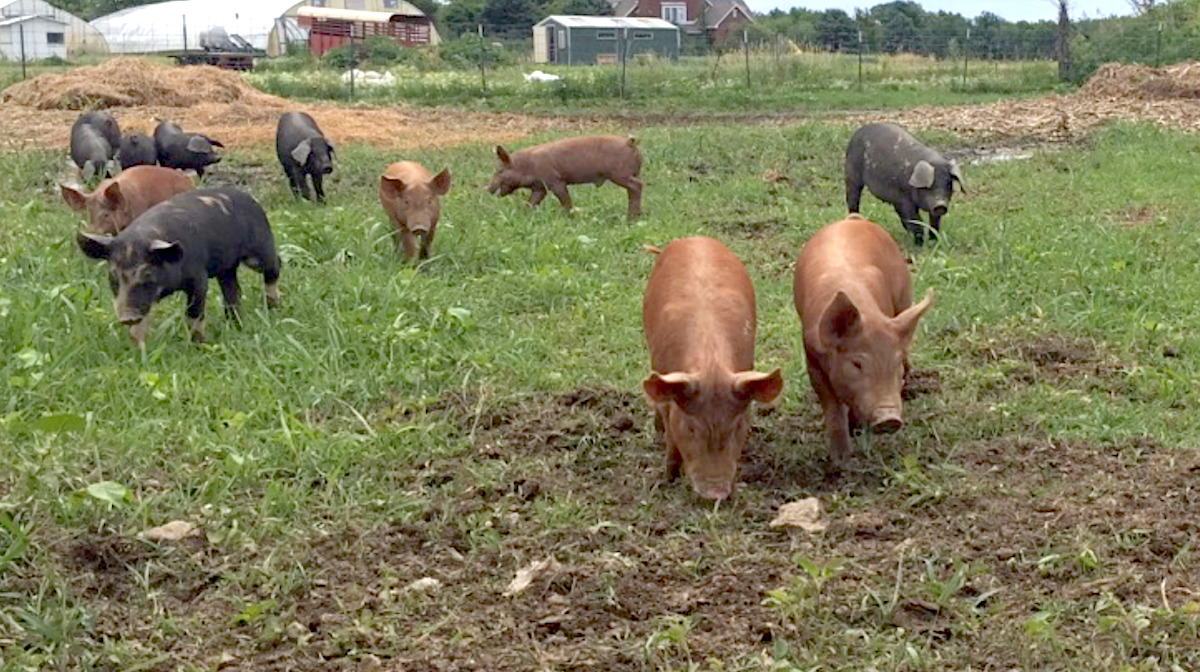
Pigs on Pasture at PrairiErth Farm
What can consumers do to help improve the lives of all our farm animals?
In the absence of political will to address these issues, it’s up to the “big boss” — the consumer and their purchasing choices — to make the necessary changes.
How do you market and sell your products? How can people shop with you/find you? Can they visit the farm?
We market all of our products direct to the consumer or through local stores. We invite the public to visit the farm. Until the pandemic, we typically hosted around 2000 visitors annually.
There is growing public concern about how our food is produced, what’s in it, and whether or not we’re being told the whole truth by the industrial food system. The prevalence of “ag-gag” laws does nothing to inspire public confidence and frequent allegations of abuse seem to validate concerns.
For more info, got to PrairiErth Farm.
To find a local farm near you, please check out our mobile app!
